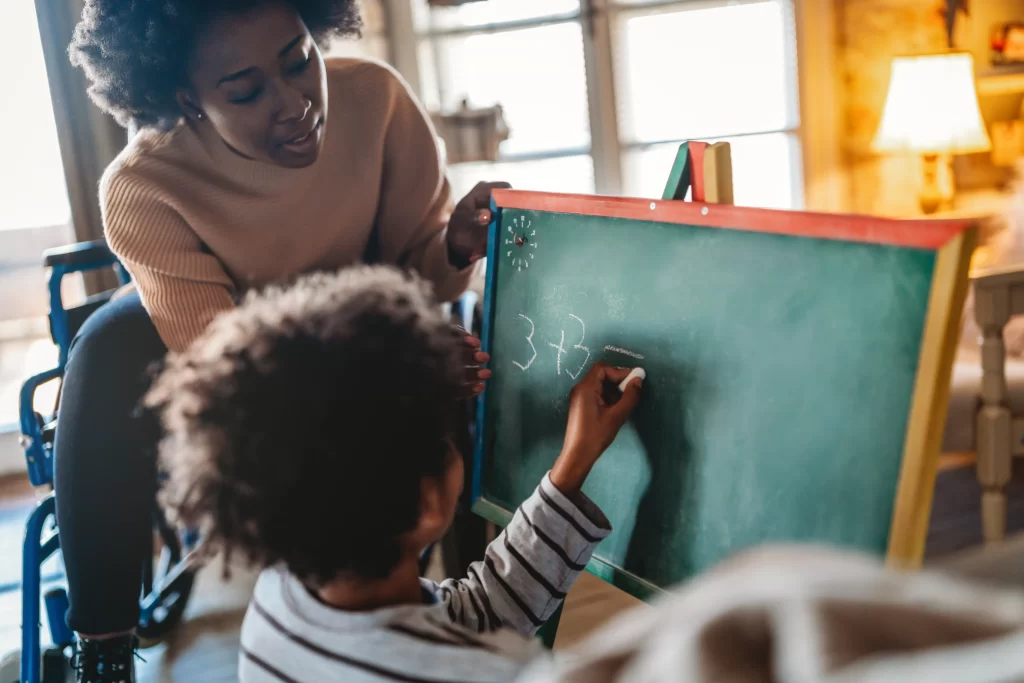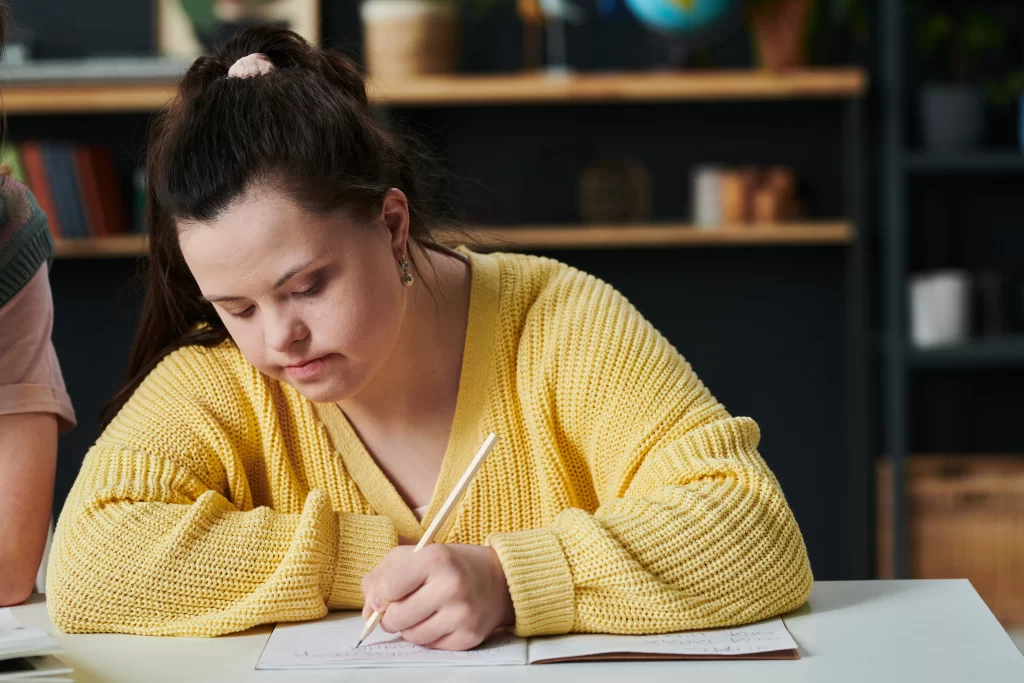Learning Disability Definition
The term learning disability is an umbrella term that explains various neurodevelopmental differences that can affect how people learn new information, perform daily tasks and gain new skills. Learning disabilities can vary in severity, so support from family members and healthcare professionals is essential in people’s physical health and emotional progress.
There are many differences between learning disability and learning difficulty, for example, learning disabilities can affect people’s social and cognitive functioning, unlike learning difficulties. Some children and adults with a learning disability may have one or more learning difficulties, such as ADHD or dyslexia.
Types of Learning Disabilities
Being aware of the different types of learning disabilities is vital in finding proactive methods and ways for learning new information. Understanding people’s learning skill sets can improve communication and help teach skills effectively. Some of the most common conditions and differences associated with learning disabilities include:
- Down’s Syndrome
- Rett Syndrome
- Prader-Will Syndrome
- Asperger’s Syndrome
- Autism Spectrum Disorder – ASD
Children and adults with learning disabilities understand and learn things differently, and may face challenges with reading, writing, listening and speaking.
Learning Difficulty Definition
Learning difficulties affect a specific area of learning. A major difference between learning disability and learning difficulty is that learning difficulties do not affect general intelligence.

Most people with learning difficulties can overcome their challenges, which may be related to reading, writing or mathematics. Other individuals can find effective solutions to manage their challenges. People with learning difficulties see significant improvements from receiving professional support and assistance.
Types of Learning Difficulties
Learning difficulties often get diagnosed in childhood, but it is also common for adults to be diagnosed later in life. Although a specific learning difficulty is life-long, it can be significantly improved through various therapies and support from family, friends and healthcare professionals.
Examples of learning difficulties include:
- Dyspraxia – difficulty with movement and coordination
- Dyslexia– difficulty with reading and writing
- Dyscalculia– challenges with understanding numbers
- ADHD(attention deficit hyperactivity disorder) – difficulties with hyperactivity and concentration
There are other types of learning difficulties that people can experience, and it is also possible for people to have more than one learning difficulty.
What Is The Difference?
It is important to know the difference between learning disability and learning difficulty.
Learning disabilities impact people’s intelligence and the way they learn new things. However, people with a learning disability can learn new skills through different methods, patience and following an individual’s own pace. A specific learning difficulty does not cause reduced intellectual ability, but it causes challenges with a particular area of learning. Dyslexia is considered the most common learning difficulty affecting reading and writing skills.
Importance of Correct Diagnosis
Getting a proper diagnosis is important for building an effective care plan. The process of getting a diagnosis entails a few steps, including assessing a person’s history and observing one’s behaviour. A GP is essential towards creating a care plan for an individual’s journey towards an independent life.
Educators need to recognise the signs of learning difficulty and learning disability. They can refer the family to a team of specialists and healthcare professionals to develop an individualised care plan to help children find the proper methods and approaches towards learning. There are a range of specialists involved in the diagnostic process, such as:
- Clinical psychologists
- School psychologists
- Developmental psychologists
- GPs
Can You Have a Learning Disability and a Learning Difficulty?
Many people with a learning disability also have a learning difficulty.
While the main difference between learning disability and learning difficulty is that a learning difficulty doesn’t affect people’s intelligence, it’s still common for these challenges to co-occur. Individuals with both a learning disability and a learning difficulty may need further support, but they can still learn skills and have a fulfilled life.

Encouraging a Strengths-based Approach to Learning Differences
A strengths-based approach is the idea that people with any challenge are the main actors of change, and healthcare providers should work alongside the individual to improve their well-being. The approach leads to improved communication and encourages individuals to focus on their strengths and identify their values.
All children have different skills and interests, and their unique strengths can influence how they learn. Therefore, families, teachers and educators are the key to identifying ways to support and improve children’s learning potential and acknowledge development opportunities.
The strength-based approach allows people to see themselves at their best and see how much value they bring by just being themselves. Our team at Unique Community Services encourages individuals to highlight their strengths and skills. Some benefits of the strength-based approach include:
- Encouraging positive behaviour
- Improving children’s confidence
- Supporting academic performance and achievements
- Fostering independence, inclusivity, diversity
- Building a better relationship both in an out of the classroom
The strength-based approach examines the environment and studies how systems are built, focusing on improving services for people that need support.
Unique Community Services Support Individuals with Learning Disabilities and Learning Difficulties
At Unique Community Services, providing compassionate care for people with learning disabilities and learning difficulties is our mission. Our clinicians are driven and dedicated to providing individualised, tailored care for both adults and children in the comfort of their own homes.
We strive to remove all social barriers individuals with disabilities face and help them live successful and independent lives. Our team of professionals carefully develops a care plan catering to people’s unique needs and skills. We prioritise the right to privacy and dignity for each individual.
You can find more information about our services by contacting our offices in Manchester or Bristol.
Also, you can contact us today for more information about delivering outstanding care and developing personalised care plans.














